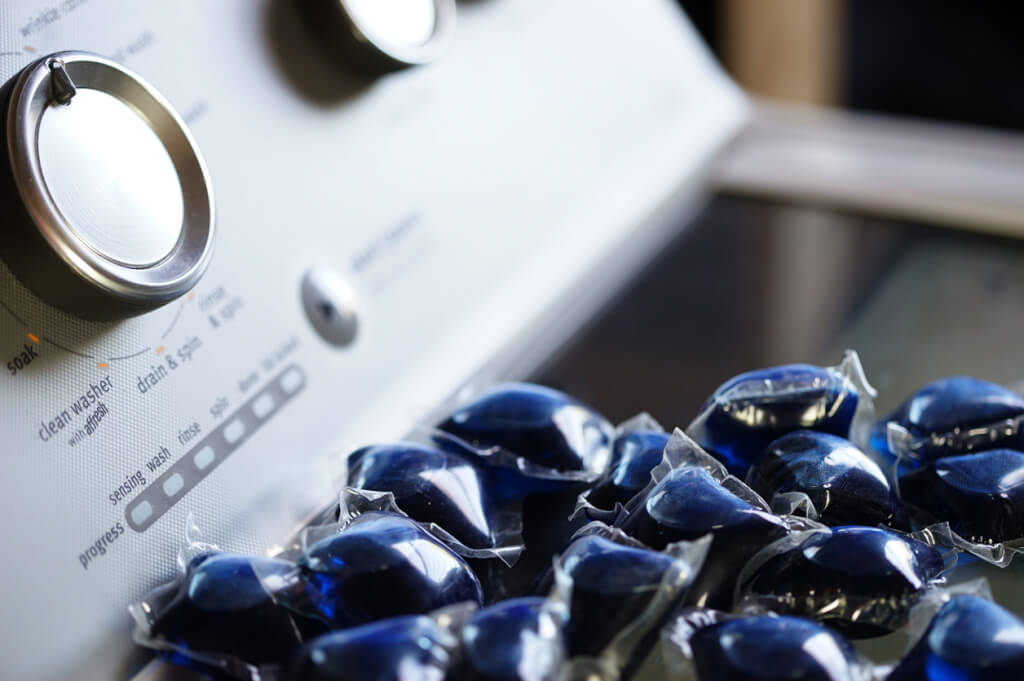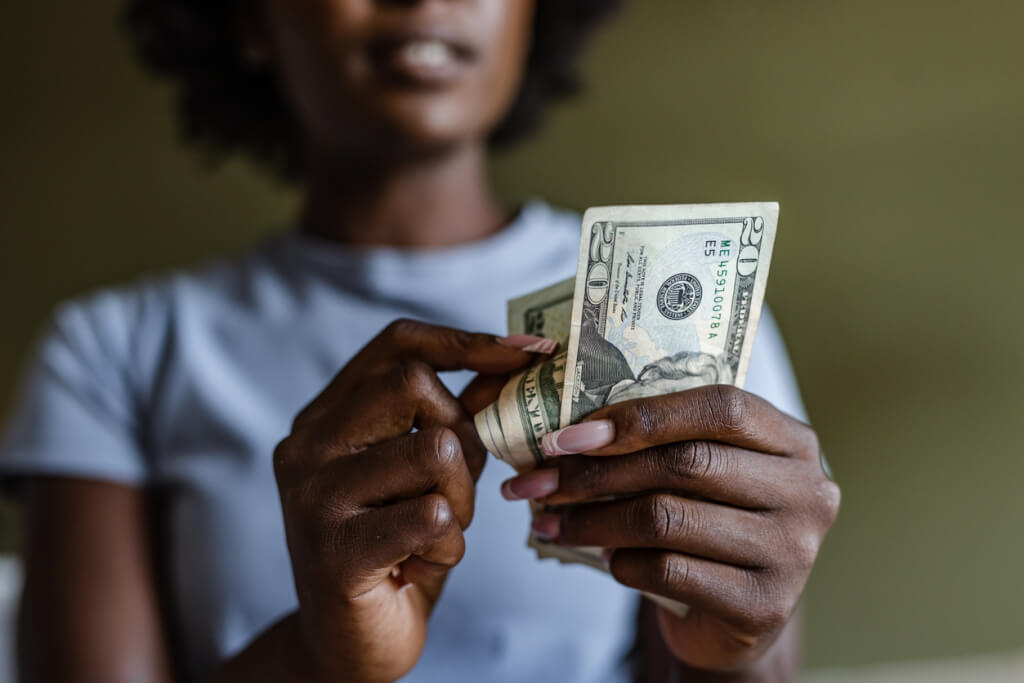New York plans to ban laundry capsules
'09.02.2024'
Alina Prikhodko
Laundry and dishwashing pods made with polyvinyl alcohol (PVA) are contributing to plastic pollution in US waterways. According to Bloomberg, New York is considering introducing restrictions on the use of laundry pods.
New York intends to limit the types of laundry detergents and dishwashing powders available in the five boroughs. City Councilman James Gennaro, a Democrat, introduced bill, which would make it illegal to sell and distribute laundry detergent capsules or laundry wipes containing polyvinyl alcohol, also known as PVA or PVOH. If the bill is approved, it will come into force on January 1, 2026.
Although laundry pods and wipes “dissolve” when washed, PVA is ultimately a type of plastic. The bill notes that microplastics (pieces of plastic less than 5 millimeters long) and nanoplastics (millionths of a millimeter) are ubiquitous sources of pollution in U.S. waterways.
Increasingly, these tiny plastic particles are almost impossible to get rid of. Scientists find them in paint, on glaciers and even in rain. By research data 2018, more than 700 tons of PVA are produced annually in the world, and this figure is increasing by 000% annually.
What kind of plastic is this?
PVA, said William Hart-Cooper, a bioproducts research chemical engineer at the US Department of Agriculture, is “just a plastic that dissolves in water.” He compared PVA's ability to dissolve to the same as stirring a little salt or sugar into a glass of water, noting that "you can still taste it if you drink the water."
Unlike many other plastics, PVA went unnoticed for many years, partly because it was not widely used. Then in 2012, Procter & Gamble Co. launched Tide Pods, essentially creating a market for laundry pods. Since then, companies including Seventh Generation, Tru Earth and Dropps have begun selling dishwashing pods, laundry pods and cloths impregnated with concentrated laundry detergent made by using PVA.
On the subject: New Jersey residents use three times more plastic after plastic ban
More recently, the material has been used in the food industry, including in protein shake capsules that can be dipped, shaken and eaten, and in edible coatings designed to extend the shelf life of fruits and vegetables.
Safe Choice
Many products made with PVA are touted to consumers as being more comfortable and more environmentally friendly. The U.S. Environmental Protection Agency has included PVA on its Safe Choices list, a program designed to encourage the use of less harmful ingredients in products.
P&G said in a statement that PVA “does not contribute to microplastic pollution,” citing “extensive recent research conducted by regulators around the world, including the EPA and the U.S. Food and Drug Administration.” A True Earth spokesperson said their PVA-based products help “combat single-use and short-lived plastic containers,” and pointed to the EPA seal of approval. Seventh Generation did not respond to requests for comment.
Dropps chief executive Alastair Dorward said the laundry pods “have become a very important step forward in sustainability in the laundry world.” He calls his capsules biodegradable. Dorward noted the ease of use and reduction in emissions, transportation and water use. Dropps estimates that the company has avoided nearly 2018 million plastic bottles since 6.

Worse than a plastic bottle
In order for something to decompose, microorganisms must break it down into simpler molecules, which in turn can be used by other organisms, and in a relatively short period of time. A banana takes a few weeks to decompose, says Varun Kelkar, an engineering manager at consultancy Alta Environmental. A plastic water bottle, on the other hand, takes about 450 years.
PVA, which like regular plastic is derived from fossil fuels, is closer to a plastic bottle than a banana. For effective decomposition it requires special conditions in treatment facilities. Such conditions do not currently exist, according to Kelkar and Charles Rolsky, executive director of the Shaw Institute.
In 2021, Kelkar and Rolski published in the International Journal of Environmental Research and Public Health research, which looked at what happens when polyvinyl alcohol enters wastewater treatment plants, which treat the water that goes down the drain before releasing it into the environment. The study found that approximately 19 tons of PVA are used annually in the United States. Approximately 000 tons end up in wastewater treatment plants, where, according to Rolski, “about 11% of the water is not treated and simply passes through conventional treatment plants.”
If you throw a plastic bottle into the ocean, it will take a long time for it to turn into microplastic. But once you put PVA in the washing machine, “it will immediately end up in the ocean through normal wastewater treatment – unlike a bottle, which at least has a chance of being recycled.”
Independent research
Not everyone agrees with Kelkar and Rolski's research, which was funded by Blueland. It makes cleaning products that compete with Dropps, but does not use polyvinyl alcohol.
“We believed that if we didn't fund independent scientific research on this topic, it was unlikely that anyone else would fund it anytime soon,” explained Sarah Paiji Yu, co-founder and CEO of Blueland, noting that the study had been peer-reviewed and presented at American Chemical Society conference.
The American Institute of Cleaning has stated that “detergent packets and the ingredients they contain are safe for household use and meet stringent testing methods to ensure they are completely soluble and quickly break down in wastewater after use.”
But there is other evidence that PVA is leaking into the environment. In a 2023 study published in the journal Chemistry & Chemical Technology, looked at what happens to laundry capsules under normal conditions of use. It showed that “sediment can be observed in pipes after using such capsules, and this leads to the formation of microplastics” that end up in the environment.
“You look at beaches all over the world—Singapore, China, Belgium, even the Pacific Northwest—PVA microplastics are found there,” said Imari Walker-Franklin, a research chemist at the nonprofit RTI International.
When PVA is released into the environment, it can have many negative effects. Fish and birds mistake microplastics for food. As it degrades, Walker-Franklin said, “not only can microplastics contain heavy metals, but they can become a breeding ground for pathogenic bacteria, viruses, or even antibiotic-resistant genes.”
Plastic is already inside us
Polyvinyl alcohol has also been found in the human body. Nanoplastics can penetrate nerve cells, potentially increasing the risk of developing Parkinson's disease. Microplastics, including polyvinyl alcohol, have been found in breast milk and placenta women.
“This means that plastic has begun to colonize babies in the womb,” said Antonio Ragusa, director of the department of obstetrics and gynecology at Maggiore Hospital in Bologna, Italy. He is the lead author of two studies that found microplastics in women who had recently given birth. According to him, plastic can cause local toxicity in infants by enhancing immune responses even after they are born.
The New York bill is not the first to sound the alarm about PVA. Last year, Blueland, the Plastic Pollution Coalition and a group of 15 nonprofits that focus on plastic pollution and climate change asked the EPA to reconsider its position on polyvinyl alcohol.
The group wanted the agency to require PVA producers and processors to “fund and conduct testing under the direction and management of independent third-party scientists.” A U.S. federal government agency rejected the petition, and the group shifted its focus to pushing for changes at the local level, such as a bill before the New York City Council.







